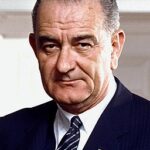The Dominican Republic Military Intervention of 1965 marked a controversial chapter in Cold War history. President Lyndon Johnson deployed 22,000 American troops to Santo Domingo within days of civil unrest. ⚠️ The decision came without congressional approval or adequate intelligence verification.
The Crisis Unfolds
Dominican military officers overthrew President Juan Bosch in 1963. Pro-Bosch forces launched a counterrevolution in April 1965. Johnson received reports claiming communist infiltration threatened American interests. Intelligence agencies later admitted these threats were greatly exaggerated. The intervention began on April 28, 1965, with Marine landings.
Justification and Criticism
Johnson cited the need to protect American lives and prevent communist takeover. 📊 However, only 2,500 Americans lived in the Dominican Republic at the time. Critics argued the response was disproportionate to actual threats. The Dominican Republic Military Intervention violated the Organization of American States charter principles.
International Response
Latin American nations condemned the unilateral action as imperialism. The intervention reminded many of earlier American occupations in the region. 💰 Economic concerns also motivated the decision, protecting substantial American business investments.
Impact:
The Dominican Republic Military Intervention created lasting diplomatic damage throughout Latin America. Trust in American leadership declined significantly across the hemisphere. 🌍 The decision reinforced negative stereotypes about U.S. interventionism in developing nations.
Regional Relations Deteriorate
Latin American countries questioned American commitment to sovereignty principles. The Organization of American States faced internal divisions over the intervention. Brazil and other major allies criticized Johnson’s unilateral approach. 📉 Anti-American sentiment increased in multiple countries following the invasion.
Precedent for Future Actions
The intervention established dangerous precedents for Cold War decision-making. Intelligence assessments became less rigorous in subsequent crises. Military solutions gained favor over diplomatic approaches. 🔥 The decision contributed to escalating Vietnam War commitments later that year.
Long-term Consequences
American credibility suffered permanent damage in Latin America. The Dominican Republic remained politically unstable for decades. Regional integration efforts stalled due to mistrust of American intentions. The intervention demonstrated how Cold War fears could override diplomatic wisdom and international law principles.
